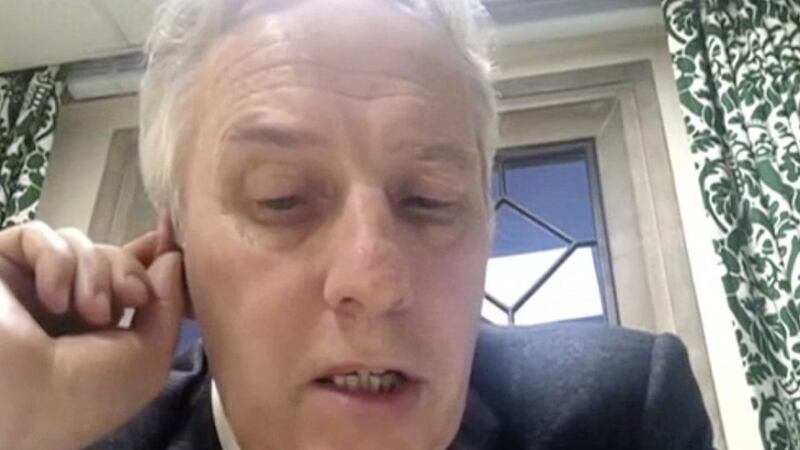DEMOCRATIC Unionist Party MP Ian Paisley has once again found himself at the centre of controversy.
On this occasion it is Mr Paisley's words and not his conduct, as in the scandal surrounding his failure to declare a series of luxury holidays to Sri Lanka, that have landed him in trouble.
In a contribution to Westminster's Northern Ireland Affairs Committee on Wednesday, Mr Paisley referred to the "genocide of sectarian murder where the IRA, the Catholic IRA, murdered Protestants at the border".
Mr Paisley's use of "genocide" is troubling, especially as he was speaking on Holocaust Memorial Day, which recalls the Second World War genocide perpetrated by the Nazis against six million Jews.
But it was the phrase "Catholic IRA" - linking the IRA campaign during the Troubles to the Catholic Church and faith - which attracted the strongest opprobrium.
These were needlessly offensive remarks, which were criticised at the time by the committee chairman, Conservative MP Simon Hoare, who described himself as "a practising Roman Catholic".
Alliance MP Stephen Farry stressed that "IRA terrorism and indeed sectarian murders" had been condemned by the Catholic Church.
Another MP, the SDLP's Claire Hanna, said Mr Paisley's comments had been "calculated and crass".
"The IRA's sectarian murder campaign was opposed by the vast majority of Catholics, Protestants and people in all our communities," she said.
Rather than take on these more measured views, Mr Paisley has been unrepentant.
Although he later said that he had made "no association of the RC Church with the IRA" he also stated that "the uncomfortable truth of my comments are a fact".
Mr Paisley has, over the years, cultivated a reputation as a straight-talking politician who dares to say things that others won't. There is also ample evidence to suggest that he revels being at the centre of the attention.
These need not necessarily be unhelpful attributes for a public figure. But Mr Paisley is far too experienced a politician not to appreciate how these particular comments would be interpreted.
An unfortunate consequence of the row sparked by his inflammatory comments is that it has distracted from the issue Mr Paisley was attempting to highlight, namely the IRA's deadly sectarian campaign against border Protestants.
He may also have reminded the wider public of the 'for God and Ulster' brand of politics once epitomised by the link forged between the DUP and the Free Presbyterian Church founded by his father.







